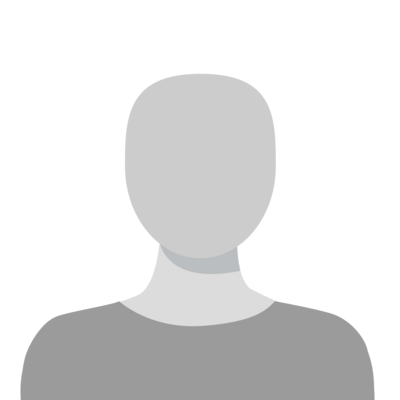
Niessing Lab
Our main interest is to understand principles of RNA-mediated gene regulation and its contribution to pathologies. Our research tools include structural biology and biophysics, RNA and protein biochemistry as well as various aspects of cell biology. In addition, we run the X-ray crystallography platform at HMGU. Furthermore, we are also closely interacting with our partner lab at the Ulm University.
Our main interest is to understand principles of RNA-mediated gene regulation and its contribution to pathologies. Our research tools include structural biology and biophysics, RNA and protein biochemistry as well as various aspects of cell biology. In addition, we run the X-ray crystallography platform at HMGU. Furthermore, we are also closely interacting with our partner lab at the Ulm University.
About us
Our interest in RNA-mediated disorders revolves mainly around the following disorders:
PURA Syndrome: PURA is an ubiquitously expressed protein with enrichment in the brain. Sporadic mutations in its gene result in the rare neurodevelopmental disorder PURA Syndrome. We are closely interacting with the patient-organizations PURA Syndrome Foundation (US-based), PURA Foundation Australia, and PURA Syndrome Deutschland e.V. to understand which molecular and cellular pathways are affected in this disorder and result in the patient's symptoms. Towards this goal, we combine our classical structural and biochemical approaches with cell-culture studies, including iPSC-based analyses, and various omics approaches. In addition, we are building up a PURA Biobank to foster research with patient-derived material.
Poly-glutamine diseases: These diseases are caused by pathologically expanded trinucleotide repeats in disease-related genes that are translated into polyQ stretches. Proteins with such expanded polyQ stretches tend to form neurotoxic aggregates. Together with our collaboration partners at the RWTH Aachen, we are characterizing the therapeutic potential of a novel drug target towards a preventive treatment of affected patients in early stages of their disease.
RNA regulation in T-cells: In a close collaboration with the groups of Vigo Heissmeyer (AMIR @ HMGU) and Michael Sattler (STB @ HMGU), we aim to understand how the RNA-binding protein Roquin and its cofactors regulate the expression of co-stimulatory receptors. A mutation in Roquin has been recently shown to cause autoimmune-like symptoms, indicating the importance of understanding how Roquin and its partners regulate the strengh of immune responses.
The X-ray Crystallography Plattform is run by our group. It is used for high-resolution structure determination of proteins and co-complexes with other proteins, nucleic acids or small inhibitory molecules. A range of collaborations and publications has emerged from this activity.
Public Science
Einführung für Laien in die Thematik Gene, Proteine, Strukturen und PURA-Syndrom (28 Minuten, Deutsch)
Kurze Einführung für Familien mit PURA-Syndrom-Patienten und deren Bekannte.
- We are excited to have contributed to the first virtual PURA Syndrome conference (June 5.-12. 2021).
Watch personal stories, science, and discussions online at the website puraconference.org
At this meeting, families with PURA Syndrome patients gathered and shared ideas, hope, and information. PURA Syndrome is a mono-genetic neurodevelopmental disorder. Although to date, only few hundreds of patients have been identified so far, there is a very active community.
Watch our lab presenting
an overview of the current research team (“Overview and Introduction to the Global Research Network” by Dierk Niessing)
the basics of genes, proteins, the content of cells and what stem cells are (“Genetics 101" by Sandra Burczyk, Lena Molitor, and Sabrina Bacher)
a talk about the function of PURA and how stem cells help us to understand its cellular function ("Stem cells and beyond - what we know about PURAs function in the cell” by Sabrina Bacher and Lena Molitor)
- Recorded Presentation: "What happens if your child is diagnosed with a rare disease?" (English - September 2020; 30 minutes)
This presentation has been recorded in September 2020 as part of the Pint of Science festival Munich.
For further reading on the experience having a child with a rare disease, we recommend the following article:
https://onlinelibrary.wiley.com/doi/full/10.1002/hast.1155
- Radio interview with Dierk Niessing (German - July 2019; 50 minutes)
Radiointerview mit Dierk Niessing durch Frank Riethdorf vom Radio free FM. Es geht um generelle Konzepte der Forschung und der Lehre an der Uni Ulm und dem Helmholtz Zentrum München.
Dierk Niessing was interviewed by Frank Riethdorf from Radio free FM, a non-profit radio station based in Ulm. They discussed the general concept of structural biology as well as his research projects at the Ulm University and his partner lab at the Helmholtz Zentrum München.
- Recorded Presentation: "Overview of PURA-Research Activities" (English - June 2019; 26 minutes)
Presentation by Dierk Niessing at the PURA Syndrome Conference in Boston, USA (June 2019). He gives an overview of current research activities within the so-called Global Research Network that is associated with the PURA Syndrome Foundation.
- “Solving the genome puzzle” - article in The Guardian (English - 2018)
Article by Linda Geddes on rare diseases and PURA Syndrome in the British newspaper The Guardian. The article includes interview sections with affected families and researchers.
- Recorded Presentation: "The potential of induced pluripotent stem cells (iPSCs) for a better understanding of PURA Syndrome" (English - June 2018; 23 minutes)
Presentation by Lena Molitor (Niessing lab Munich) at the PURA Syndrome Conference (The Wellcome Genome Campus Conference Centre, Hinxton, UK) in June 2019. She gives an overview of current state-of-the-art of iPSC-based reseaerch and genome editing methods to better understand the PURA Syndrome.
- Recorded Presentation "PURA: from gene to function" (English - June 2018; 33 minutes)
Presentation by Dierk Niessing at the PURA Syndrome Conference (The Wellcome Genome Campus Conference Centre, Hinxton, UK) in June 2019. He explains what genes and proteins are and how mutations affect genes and proteins, resulting in genetic diseases.
Publications
Read more2022 Scientific Article in Frontiers in Immunology
A novel monoclonal IgG1 antibody specific for Galactose-alpha-1,3-galactose questions alpha-Gal epitope expression by bacteria.
2022 Scientific Article in Virulence
Presence and function of Hbl B', the fourth protein component encoded by the hbl operon in Bacillus cereus.
2022 Scientific Article in Computational and Structural Biotechnology Journal















